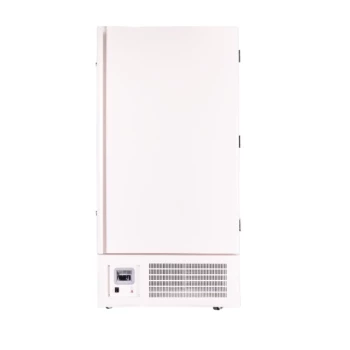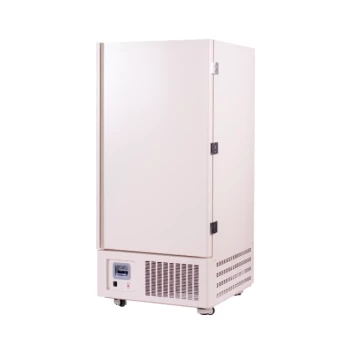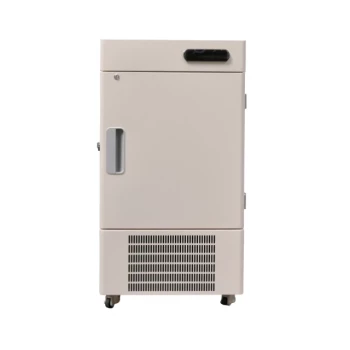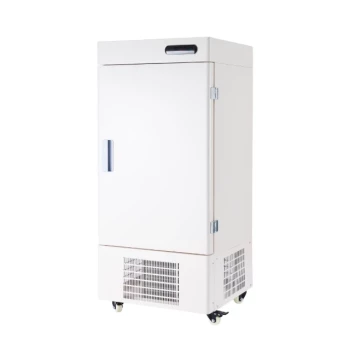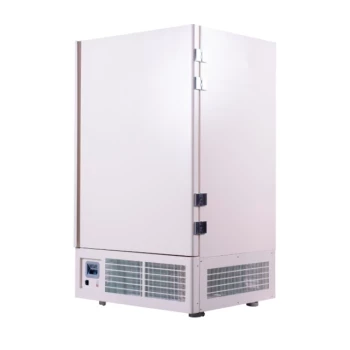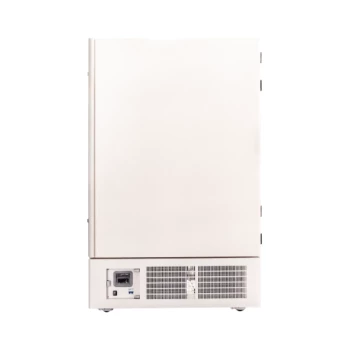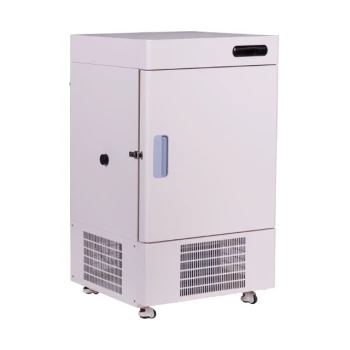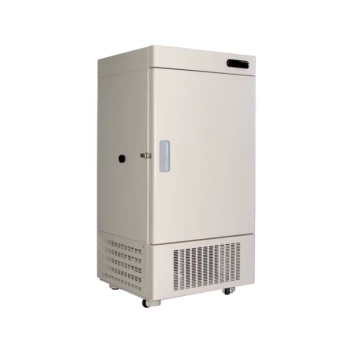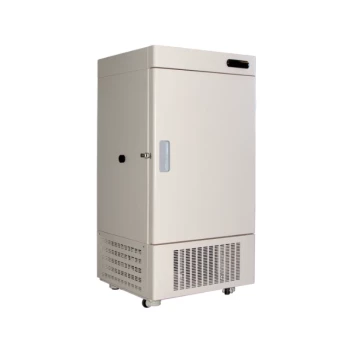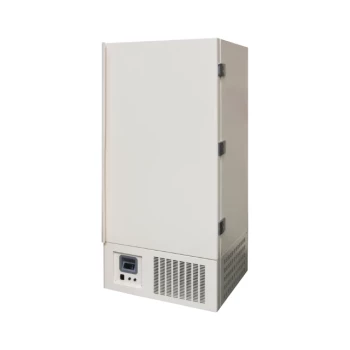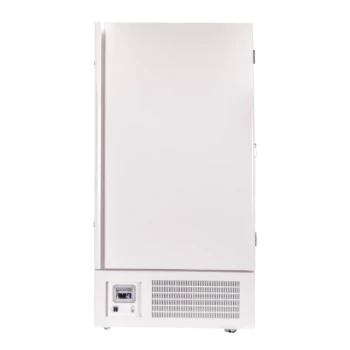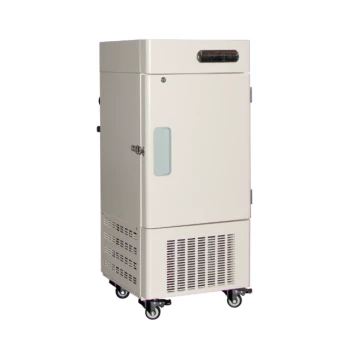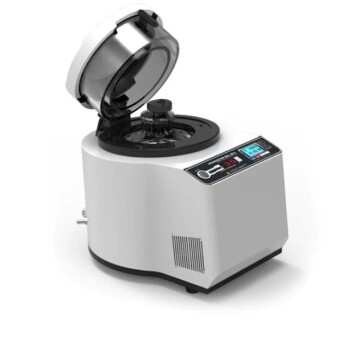At their core, ultra-low temperature (ULT) freezers contribute to sample stability by creating an extremely cold and constant environment, typically below -40°C. This intense cold effectively halts the biological and chemical processes, such as enzymatic activity, that cause sensitive samples like cells, proteins, and nucleic acids to degrade over time.
The crucial function of a ULT freezer is not merely to achieve a low temperature, but to maintain it with unwavering consistency. It is a highly engineered system designed to defend against the primary enemy of sample integrity: temperature fluctuation.
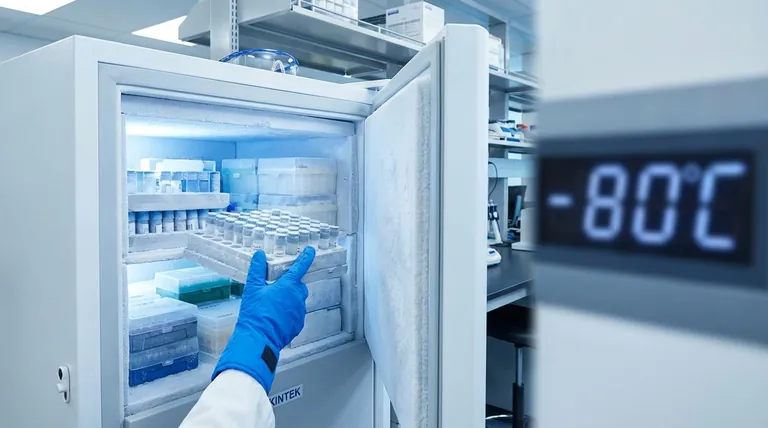
The Core Principle: Halting Molecular Motion
To understand how a ULT freezer works, it's essential to grasp why extreme cold is so effective for preservation.
Why Low Temperature Is Critical
All biological samples are in a slow state of decay. Enzymes and chemical reactions continue to operate, breaking down complex molecules.
By lowering the temperature to ultra-low levels, you drastically reduce molecular motion, effectively pausing the degradation processes that would destroy a sample's viability at room temperature or even in a standard freezer.
The True Enemy: Fluctuation
Just as important as the absolute temperature is its stability. Even minor temperature fluctuations can be damaging.
Cycles of slight warming and cooling can allow ice crystals to form and reform within cells, a process that can rupture cell membranes and compromise the sample's structural integrity.
Key Engineering for Unwavering Stability
A ULT freezer is far more than a powerful cooling unit. It is an integrated system where multiple components work together to create a fortress against heat and temperature instability.
The Refrigeration Engine
Modern ULT freezers use advanced cascade refrigeration systems. These are essentially two cooling circuits linked together, allowing them to achieve much lower temperatures far more efficiently than a single system could.
Compressors and heat exchangers work continuously to remove heat from the insulated chamber, maintaining the precise setpoint.
A Fortress Against Heat
The freezer's ability to maintain temperature relies on minimizing heat transfer from the outside environment.
This is achieved through thick walls filled with high-efficiency polyurethane insulation. Furthermore, a dual-door design, with a main outer door and sealed inner doors, dramatically reduces the amount of warm air that enters the chamber during sample retrieval.
Advanced Sealing
The main door is sealed with tight, silicone-like gaskets and often an external knob or handle that ensures a complete seal. This prevents warm, moist air from leaking in, which would not only raise the temperature but also cause damaging frost buildup.
Rapid Temperature Recovery
In a busy lab, the freezer door is opened frequently. ULT freezers are designed for quick temperature pull-down and rapid recovery.
This means that after a door opening introduces warm air, the system can quickly return to its set temperature, minimizing the duration of a sample's exposure to thermal stress.
Understanding the Trade-offs and Failure Points
While highly reliable, understanding the potential vulnerabilities of ULT storage is key to protecting valuable samples.
The Risk of Power Failure
The most significant external risk is a loss of power. To mitigate this, high-end ULT freezers are equipped with battery backup systems.
These backups do not run the refrigeration cycle but will power the critical monitoring systems and alarms that alert personnel to the failure, providing a window to enact emergency protocols.
The Inevitability of Frost
Every time the door is opened, moisture enters and can form ice. Excessive frost acts as an insulator, forcing the compressor to work harder and potentially creating warmer spots in the freezer.
Features like heated pressure release valves help reduce this, but regular manual defrosting and inventory management remain essential for optimal performance.
Alarms and Monitoring
Modern freezers are equipped with sophisticated visual and audible alarms. These systems alert users immediately to any temperature deviation, power failure, or door-ajar event, enabling a rapid response before samples are compromised.
Making the Right Choice for Your Goal
Selecting the right ULT freezer means matching its features to the specific demands of your samples and workflow.
- If your primary focus is long-term archival (Biobanking): Prioritize models with the most robust backup systems, advanced remote monitoring, and a proven track record of temperature stability over many years.
- If your primary focus is high-throughput clinical use: Emphasize rapid temperature recovery after frequent door openings to ensure sample integrity in a busy environment.
- If your primary focus is storing ultra-sensitive molecules (e.g., RNA, certain proteins): Look for freezers with documented temperature homogeneity, ensuring no "hot spots" exist within the chamber that could compromise specific samples.
Ultimately, a ULT freezer's value is defined by its engineered resilience against the thermal changes that threaten your irreplaceable work.
Summary Table:
| Key Function | How It Protects Samples |
|---|---|
| Extreme Cold (-40°C and below) | Halts enzymatic activity and chemical degradation. |
| Temperature Stability | Prevents damaging freeze-thaw cycles and ice crystal formation. |
| Rapid Temperature Recovery | Minimizes thermal stress after door openings. |
| Advanced Alarm Systems | Alerts users to deviations, power loss, or door-ajar events. |
| Backup Power Options | Provides critical time to enact emergency protocols during outages. |
Protect your irreplaceable research with a ULT freezer designed for your specific needs. Whether you are managing a high-throughput clinical lab, a long-term biobank, or storing ultra-sensitive molecules, KINTEK's range of laboratory freezers delivers the precise temperature control, stability, and reliability your work demands. Contact our experts today to find the perfect preservation solution for your laboratory.
Visual Guide
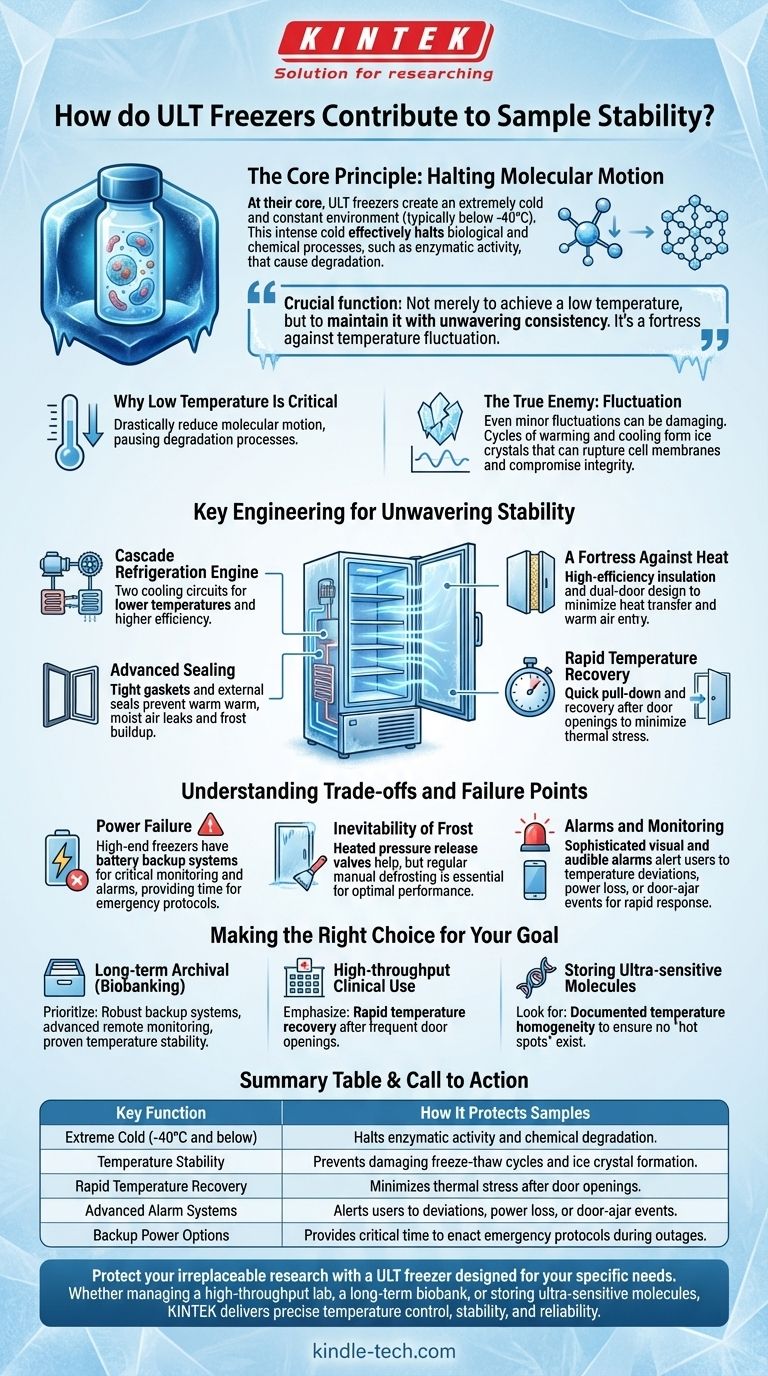
Related Products
- 508L Advanced Vertical Ultra Low Temperature Freezer for Critical Laboratory Storage
- 408L Advanced Vertical Laboratory Ultra Low Temperature Freezer for Critical Research Material Preservation
- 58L Precision Laboratory Ultra Low Temperature Upright Freezer for Critical Sample Storage
- 158L Precision Vertical Ultra Low Freezer for Laboratory Applications
- 808L Precision Laboratory Vertical Ultra Low Temperature Freezer
People Also Ask
- Why are ULT freezers considered vital equipment in labs? Ensuring Uncompromised Sample Integrity for Critical Research
- What are ultra-low temperature freezers designed for? Preserving Your Most Valuable Biological Samples
- What are the key features to look for in an ultra-low temperature freezer for mRNA vaccine storage? Essential Features for Absolute Vaccine Integrity
- How are advancements in compressor technology and refrigerant fluids improving ULT freezers? Boost Efficiency & Cut Costs
- How is temperature controlled in ultra low temperature freezers? A Guide to Stable -80°C Storage
